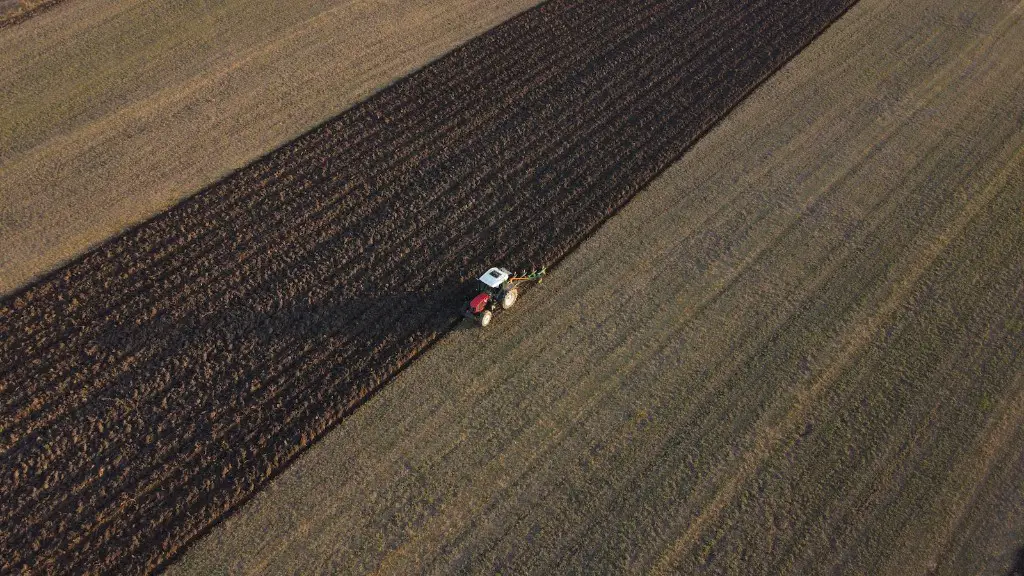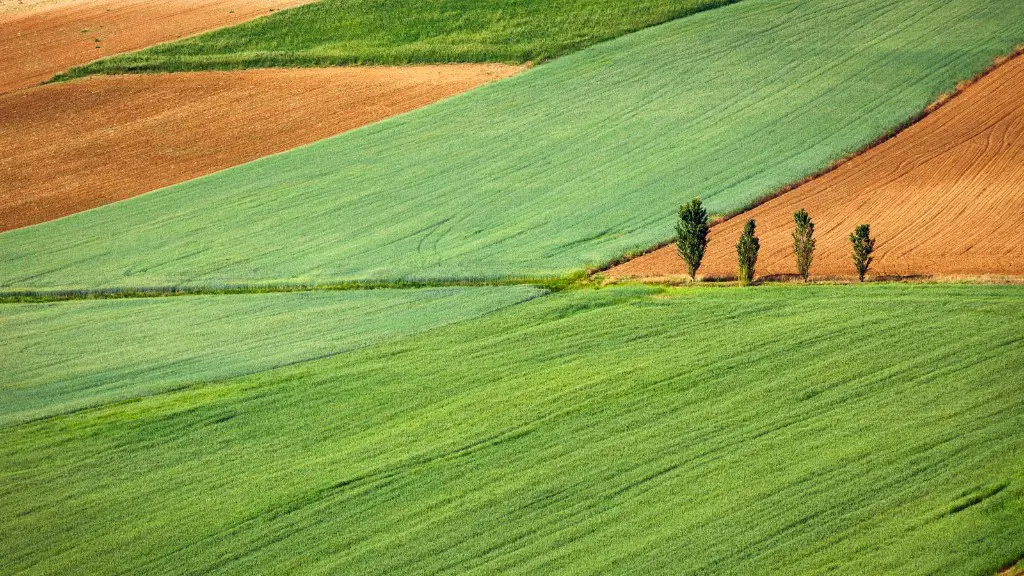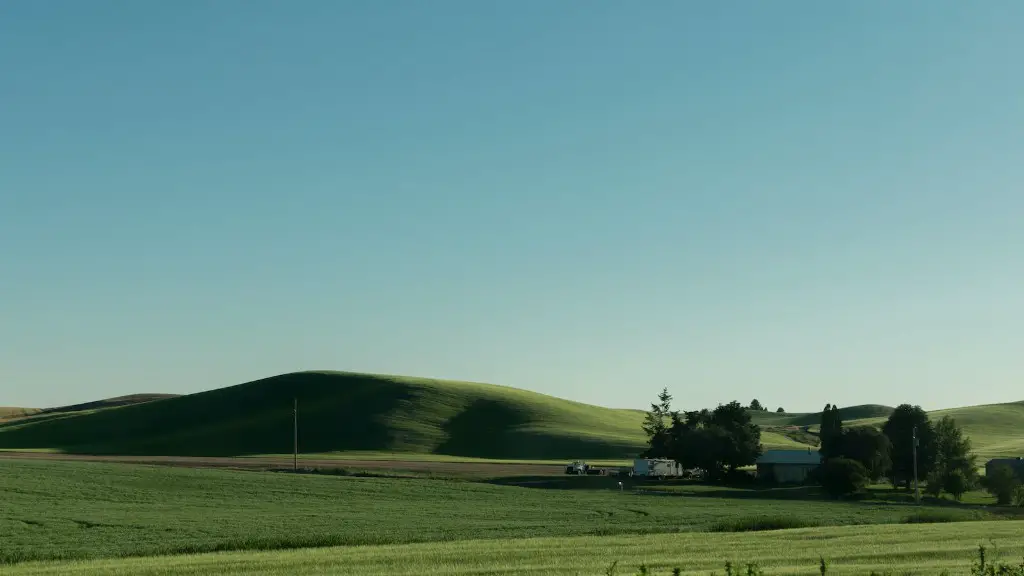Agriculture has long been seen as one of the key factors in the development of civilizations. It is believed that the domestication of plants and animals led to the development of more complex societies. Agriculture allowed for the growth of cities and the rise of civilizations. It also allowed for the growth of food surpluses, which allowed for the development of trade and commerce.
It is often said that agriculture is the foundation of civilization. This is because agriculture allowed for the domestication of plants and animals, which led to the development of settled communities. Agriculture allowed for the growth of cities and the rise of civilizations. Agriculture provided food for larger populations, and it also allowed for the development of trade and commerce. Agriculture helped to build civilizations by providing the food and resources that were necessary for their growth.
How did agriculture develop civilization?
The Agricultural Revolution was a period of time approximately 10,000 years ago when humans began to domesticate plants and animals. This transition from a nomadic hunter-gatherer lifestyle to a sedentary agricultural lifestyle allowed for the development of communities and civilizations. This period was a turning point in human history and had a profound impact on the development of human societies.
Farming allowed for the growth of food in one area, which in turn led to population growth. This created cities and allowed for trade to develop. Trade was essential for the growth of civilizations and the development of new technologies.
What role did agriculture play in the early American colonies
In Colonial America, the vast majority of the population was involved in agriculture in some capacity. This was primarily due to the fact that there were few other options for employment. Most towns were shipping points for the export of agricultural products, which was the primary source of income for many families. However, many farms were also geared toward subsistence production, meaning that they produced enough food to meet the needs of the family with little or no surplus.
When early humans began farming, they were able to produce enough food that they no longer had to migrate to their food source. This meant they could build permanent structures, and develop villages, towns, and eventually even cities. Closely connected to the rise of settled societies was an increase in population.
How did agriculture help build civilizations quizlet?
Farming has changed the way communities are built and function. It has allowed for people to trade goods and has made it possible for people to settle in one place and build more permanent homes. This has had a profound impact on the way people live and has helped to shape the communities we see today.
Agriculture is a vital sector of the economy, playing a major role in economic growth and development. As the provider of food, it is a cornerstone of human existence. As a furnisher of industrial raw materials, it is an important contributor to economic activity in other sectors of the economy.
The agricultural sector is a major employer, providing livelihoods for millions of people around the world. It is also a major source of export earnings for many countries, making it a key driver of economic growth.
Despite its importance, the agricultural sector is often overlooked in terms of policy and investment. This needs to change if we are to achieve sustainable economic growth and development.
What are 3 reasons why agriculture is important?
1. Agriculture is the main source of raw materials for industries.
2. It is important to international trade.
3. It plays a big role in a nation’s revenue.
4. It provides employment.
5. It’s crucial to a country’s development.
6. It can help heal the environment.
7. It goes hand-in-hand with war.
8. Without it, we wouldn’t have most of the food we eat.
9. It can help us become more self-sufficient.
10. It’s a vital part of our economy.
Agriculture has been one of the most important factors in shaping human history. It has allowed for the development of civilizations and the growth of cities and states. Agriculture has also had a profound impact on the environment.
How did agriculture change the early Americans
Farming allowed people to stay in one place and not have to travel to find food. This led to the development of communities, and people began to grow crops or raise animals on nearby land. They also began to build stronger, more permanent homes and surrounded their settlements with walls to protect themselves.
The success of agriculture among Native Americans allowed for the development of larger communities which often numbered in the thousands. This was a dramatic change from their former lives as hunter-gatherers in which their bands often numbered only a few dozen. This success was due to the Native Americans’ ability to cultivate the land and use it to their advantage.
Why was agriculture so important to the United States?
Agriculture allowed people to produce surplus food. They could use this extra food when crops failed or trade it for other goods. Food surpluses allowed people to work at other tasks unrelated to farming. Agriculture kept formerly nomadic people near their fields and led to the development of permanent villages.
While the development of agriculture can have positive effects on the natural life, oxygen production, and climate in a region, it can also cause negative effects, such as inorganic nitrate pollution, pesticide pollution, and salinity problems. These problems are especially common in regions where agriculture is intensive.
What was a result of the agricultural
The Agricultural Revolution had a profound impact on human societies. It is linked to the rise of social inequality, as people became more dependent on the land for their livelihoods. It also contributed to a decline in nutrition and an increase in infectious diseases contracted from domesticated animals. The Agricultural Revolution was a key turning point in human history, and its consequences are still felt today.
Farming has played a vital role in the development of civilization. By allowing people to settle in one place, it has created cities and allowed for the development of other aspects of civilization. Additionally, farming has produced a surplus of food, which has been essential for the advancement of society.
What are the five benefits of agriculture?
farming is a good way to get some exercise and fresh air. It is also a challenging and stimulating occupation which can provide a source of income in rural areas. Farm work can help to develop younger generations and farming can also help the environment to thrive.
The term “agriculture” includes both crops and livestock. It is, after all, considered as the backbone of the economy. It forms the basis for food and nutrition security and provide raw materials for industrialization.
Although, the sector has been neglected in recent times, the government is now taking various measures to promote agricultural growth. These include Pradhan Mantri Fasal Bima Yojana, Pradhan Mantri Krishi Sinchai Yojana etc.
It is hoped that with these initiatives, the agricultural sector will get a boost and make a significant contribution to the economy.
Final Words
The origins of agriculture can be traced back to the Neolithic Revolution, when humans first began to domesticate plants and animals for food. Agriculture allowed for the domestication of plants and animals, which led to the development of civilizations. Agriculture allowed for the growth of cities and the rise of civilizations. Agriculture allowed for the growth of food surpluses, which allowed for the development of trade and commerce. Agriculture allowed for the growth of populations, which led to the development of civilizations.
Agriculture has played a pivotal role in the development of civilizations across the globe. The domestication of plants and animals, coupled with the development of new tools and techniques, allowed for the growth of cities and the rise of civilizations. Agriculture allowed for the growth of cities by providing a reliable food source, and it allowed for the rise of civilizations by providing a surplus of food that could be used to support a non-agricultural population. Without agriculture, civilizations would not have been able to develop to the same extent.





